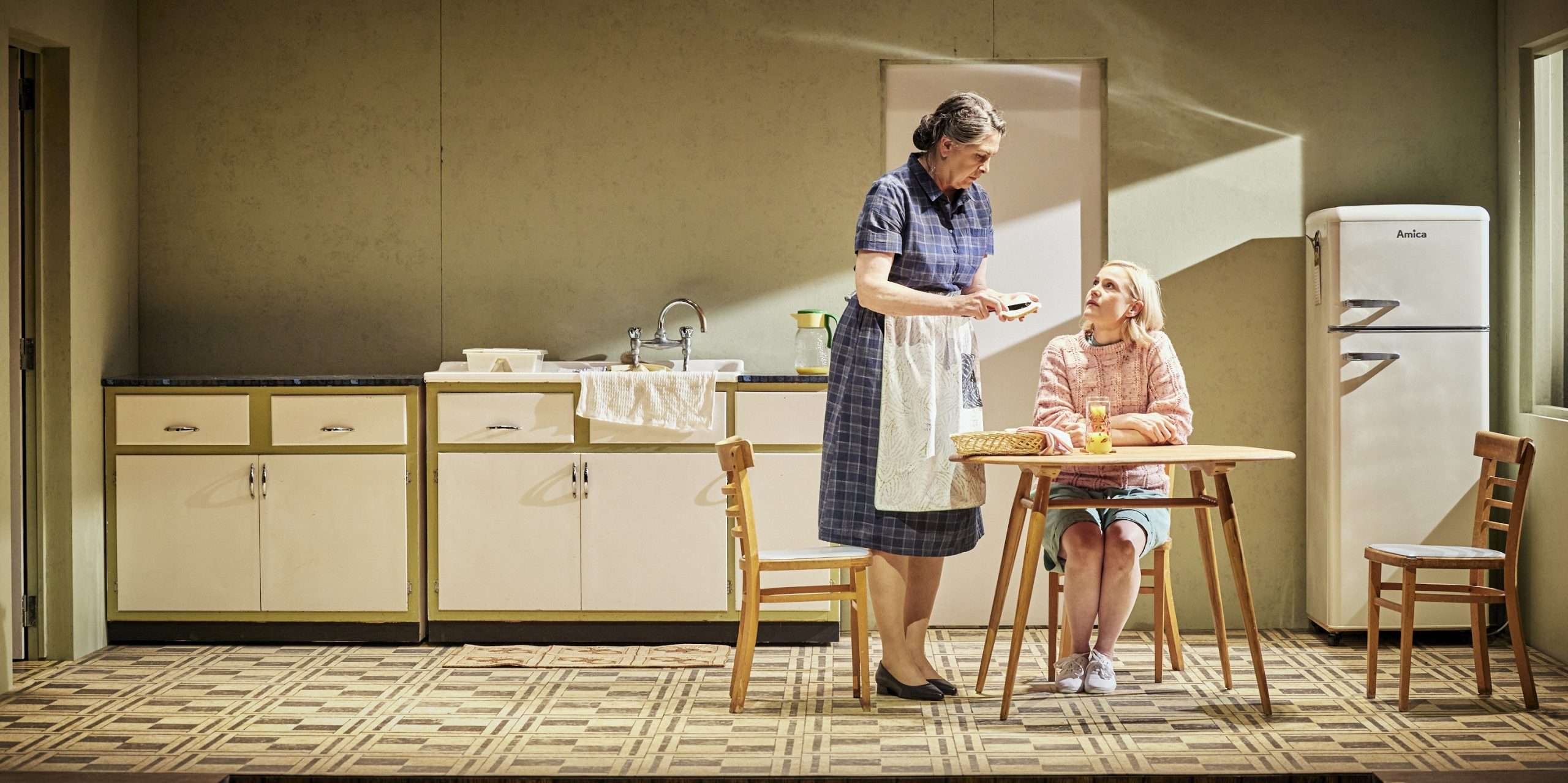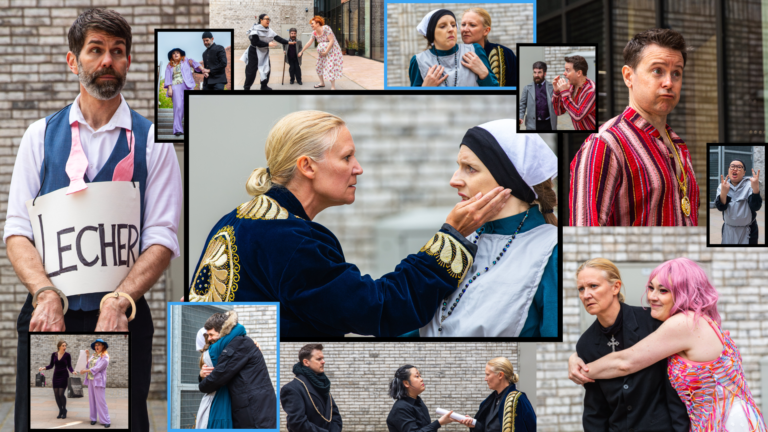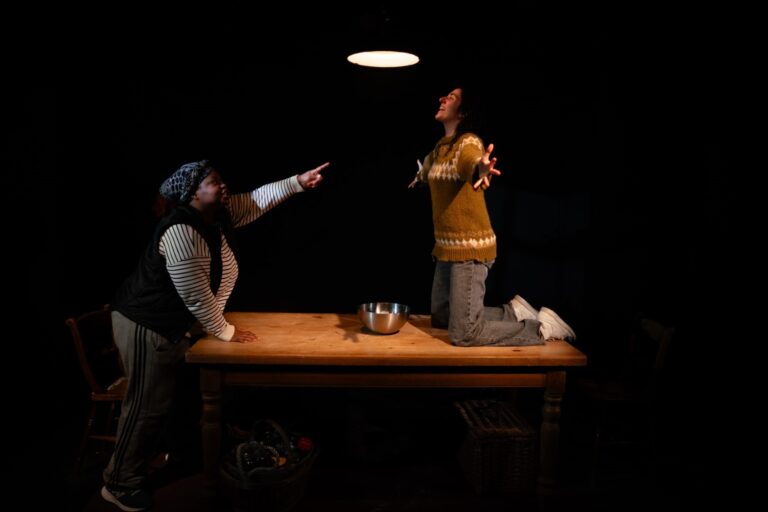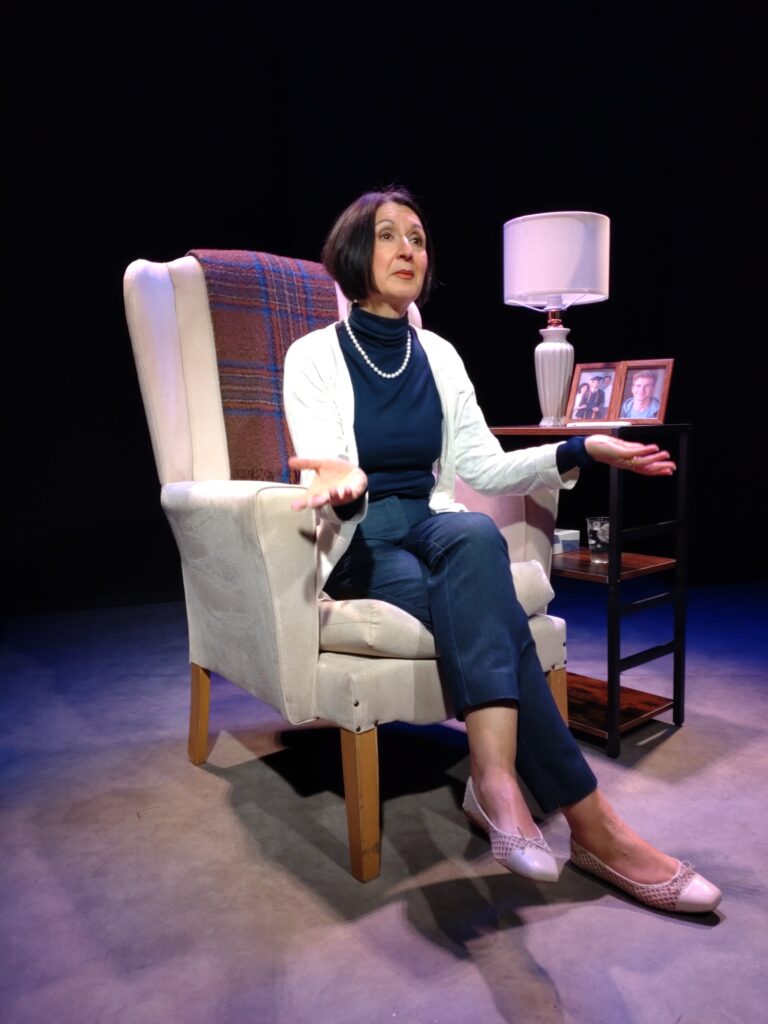Let’s get my confession out of the way. I did not enjoy this play. Playwright Alexander Zeldin says that he wrote with the intention of celebrating ordinary life, of shining the spotlight for once on the unnoticed and unsung, writes Katie Kelly…
One of my favourite quotes from all literature is: “For the growing good of the world is partly dependent on unhistoric acts; and that things are not so ill with you and me as they might have been, is half owing to the number who lived faithfully a hidden life, and rest in unvisited tombs.” George Eliot – Middlemarch.
So, I should have absolutely loved it.
The basic story is that of Alice who spends a life trying to find her way to fulfilment in ways that require a courageous swimming upstream against the prevailing culture from 1943 to 2021.
It is in many ways brilliant. The staging is superb. As we enter the story of Alice’s ordinary, and as she describes it, ‘boring’ life, which is symbolised in the first scene by a perfectly rendered scruffy school stage. It was quite disorienting, almost as if we had arrived in the wrong place and were about to be treated to an amateur dramatic performance.
The line between being spectators and participants was kept thin throughout the play. The house lights never quite went down; the cast occasionally intermingled with the audience and appeared through auditorium doors. The set changes happened undisguised, albeit well-choreographed.
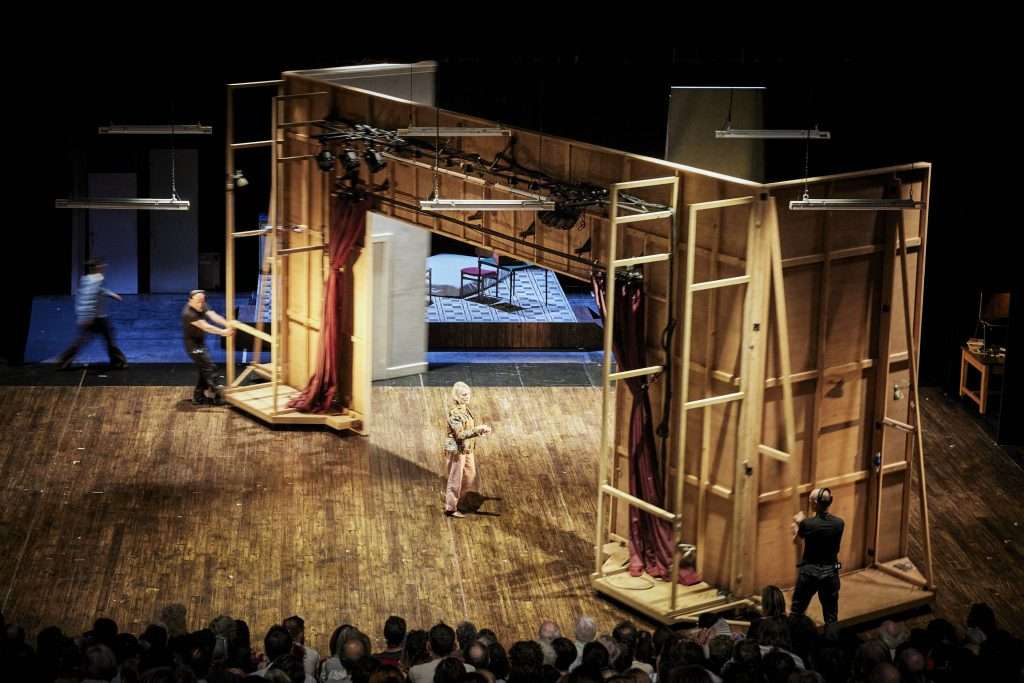
There is much that is unsettling in the story. The #metoo moments are powerfully disturbing, so much so that the trigger warnings felt insufficient. A woman next to me had to leave and ‘regroup’ for a while.
The acting of Amelda Brown as the older Alice was beautiful, grounded and wise whereas Eryn Jean Norville as her younger self added to the general sense of agitation. Her performance was permanently ‘wired’ as if on the edge of some kind of breakdown.
The narrative would justify this but it led to an extraordinarily tense hour and 50 minutes, unrelieved by an interval. This stress was only increased by the music which was original, impressive and at times oppressive.
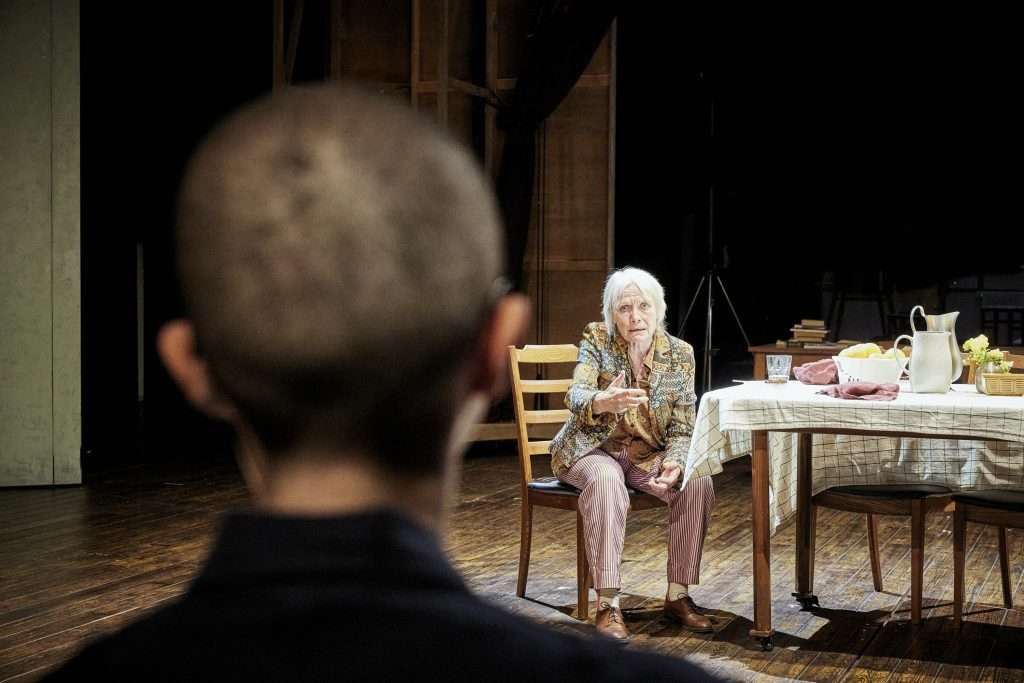
The supporting cast is strong and versatile, convincingly playing numerous parts each.
Pamela Rabe brought some welcome relief as Eva, a no-nonsense feminist Germaine Greer-a-like; but beyond the first few minutes when the tension was mostly humorous, there wasn’t much let up in the misery.
Not all theatre needs to be light entertainment but even in the portrayal of a challenging life there is often hope and humour to be found.
I left this show feeling simultaneously impressed and depressed.
Lyttelton Theatre, Upper Ground, South Bank, London, SE1 9PX until 4th November.
Details and Booking: https://www.nationaltheatre.org.uk/productions/the-confessions/


